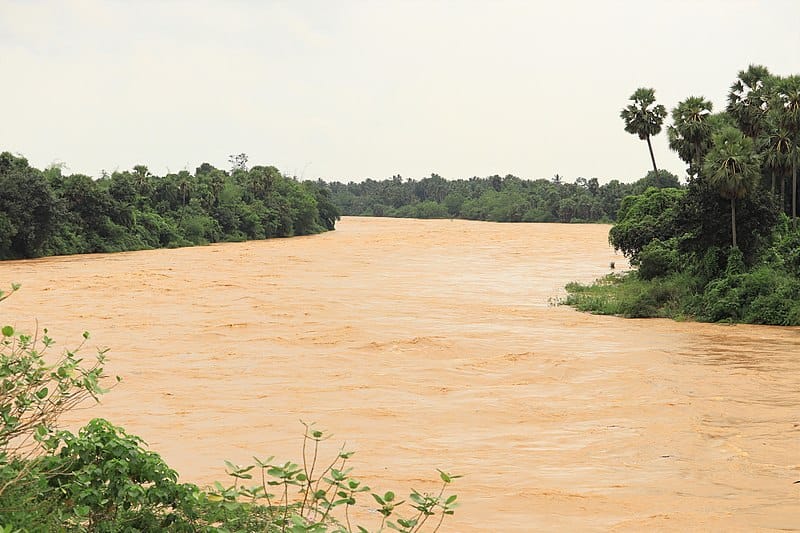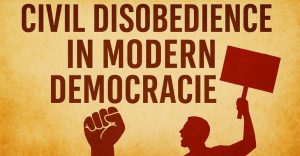
A Libertarian Perspective on Ghana’s Environmental Crisis and Governmental Shortcomings
Ghana, a country known for its rich natural resources and diverse ecosystems, is currently facing an unprecedented environmental crisis. Illegal mining, popularly known as galamsey, has ravaged the free-flowing rivers and green vegetation in a way that can only be described as devastating. Things have reached such a critical point that the water is turning poisonous while the greens are rapidly disappearing. The degradation of the environment poses a great threat not only to the ecological balance of Ghana but also to the health, livelihood, and future of its people
What exacerbates the disheartening nature of this crisis is the government’s inability to address it effectively. Notwithstanding years of commitments, policies, and enforcement actions, the situation appears to deteriorate further. Moreover, there are increasing concerns that certain individuals within the government may be complicit in illegal mining activities.
From a libertarian perspective, this is just one more example of how, time and again, central government control and intervention cannot achieve their goal of protecting the public good when those in charge may have interests of their own for keeping the status quo intact.
The Consequences of Illegal Mining (Galamsey)
The environmental impact of galamsey is disastrous. Rivers such as the Pra, Birim, and Ankobra, which hitherto supplied clean water for drinking, agriculture, and fishing, are now contaminated with mercury and sundry other noxious chemicals employed in illegal gold mining. Pollution of these water bodies poses serious health hazards to local communities, manifesting in the growing incidence of skin diseases, respiratory problems, and other health issues.
Besides the immediate health hazards, the destruction of vegetation from this destruction and the degradation of lands further worsen the situation. Forests that help absorb carbon dioxide and protect against soil erosion are being cleared for the said illegal mining activities. This situation threatens not just biodiversity in Ghana but also is detrimental to sustainable agriculture and other long-term land-based economic activities.
The economic repercussions are equally dire. Illegal mining harms the formal mining sector by reducing government revenues, as illegal miners do not pay taxes or royalties. This loss of revenue constrains the government’s ability to invest in public goods and services, ranging from education and health to infrastructure. Moreover, the destruction of farmland and waterbodies directly affects farmers, fishermen and community livelihoods.
Government’s Failure: A Story of Incompetence and Corruption
The inability by the government to effectively deal with illegal mining has been a conspicuous case of the disadvantages associated with centralized control and bureaucratic procedures. For several years, governments have rolled out programs, set up task forces, and even deployed military forces to offset illegal mining, to little avail. In some cases, these efforts have led to unforeseen consequences, such as increased violence and corruption among the police. The foundation of the issue resides in the government’s monopoly on land and resource management. The centralized control over natural resources has generated opportunities for rent-seeking behaviour and corruption, with politicians and bureaucrats reportedly ignoring or even enabling illegal mining activities in return for financial incentives. The absence of transparency and accountability in the government’s approach to this matter further exacerbates suspicions of collusion between officials and illegal miners.
Beyond this, the government’s high-handed approach-top-down enforcement and punitive measures have proved inefficient in tackling the root drivers of illegal mining. Most of the illegal miners are poor and see that activity as the only way to survive. In the absence of alternatives, criminalization of their activities serves to perpetuate the vicious circle of poverty and environmental degradation.
Libertarian Solutions: Empowering Communities and Safeguarding Property Rights
As libertarians, we advocate for the minimization of government intervention while simultaneously promoting individual freedom and responsibility. The galamsey crisis exemplifies how a decentralized, market-based approach can provide more effective and sustainable solutions in comparison to the unsuccessful policies associated with centralized control.
Strengthen Property Rights: The protection of property rights, among other things, is one of the basic tenets of libertarianism.
In relation to illegal mining, this involves respect and implementation of the property rights of the communities and landowners. Ownership and control over their lands and resources would give people a direct interest in protecting and preserving them in a manner that is consistent with long-term sustainability. People take better care of their property when they own the land they live on and the resources that make their lives possible.
Encourage Voluntary Environmental Stewardship: Instead of relying on government edicts, encourage voluntary, locally driven efforts at environmental protection. This might include the establishment of local conservation groups, offering incentives to act in environmentally positive ways, and encouraging the development of partnerships between communities and environmentally conscious businesses. In so doing, by allowing individuals and communities to take ownership of their own environmental protection, we will be able to create a more robust and enduring resource management system.
Deregulate and Legalize Small-Scale Mining: Because of the illicit nature of galamsey, it has to be done hidden, making regulation and oversight difficult. Legalizing and deregulating small-scale mining brings these activities into the formal economy, where they can be subjected to environmental standards while ensuring that miners pay taxes and royalties. This would help reduce environmental degradation caused by mining and raise revenues that could be reinvested in public goods and services.
Decentralize Resource Management: The management of resources should be decentralized, instead of coming from the central government control, and be allowed to a greater extent to the local communities, private landowners, and market forces. This can involve local boards for resource management that allow the community to lease land to responsible mining companies or market mechanisms that protect the environment, such as carbon credits or conservation easements.
The pollution of Ghana’s waters, alongside the destruction of its vegetation by illegal mining, is a tragedy to which urgent action is called. But that solution does not lie in increased government intervention that has already proved ineffective and prone to corruption. What is desperately needed is a libertarian approach that will further empower the people, protect property rights, and promote voluntary environmental stewardship. By devolving resource management and providing incentives for sustainable behaviours, the root causes of galamsey can be addressed, and Ghana’s natural resources can be preserved for generations to come. The time has come to move beyond ineffective policy-making from the past and into a new and different approach to environmental protection policy that respects the liberty and the responsibility of every Ghanaian citizen.
Haleed Sulemana Namyella (send him mail) is a Human Rights Advocate & Development Professional . He Serves as a research Associate of the Institute for Liberty and Economic Education (ILEE). Mobile Phone: (+233) 24 051 0973.
DISCLAIMER: “The views expressed on ileeghana.org are not necessarily those of Institute for Liberty and Economic Education (ILEE)”.





